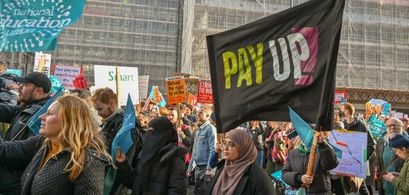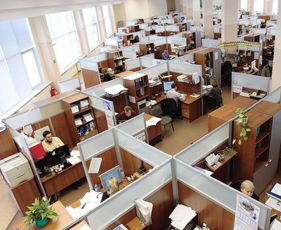- 52% of brits think being a nurse is harder than being the Prime Minister.
- Yet nurses earn nearly 5 times less than the PM.
- Since 2011, nurses’ salaries have risen just over £2,500, while the PM’s salary has increased more than £20,000.
When the spectre of politicians’ excessive salaries is raised, there is a common defence: “but their job is hard.” The public pressure and hectic schedule would put many of us off. But does that really mean their earnings are justified?
Moneyzine.co.uk has analysed data showing a clear discrepancy between the jobs Brits deem the most difficult, and those which command the highest pay. Worse still, most of the jobs Brits think are harder than being PM have seen far smaller salary increases over the last decade.
How much does the Prime Minister earn?
Few will be surprised that the UK Prime Minister earns a strong six-figure salary. But perhaps more surprising is the rate at which that salary has risen in the last 10 years - a period during which economic growth has been slow and public trust in politicians has hit an all-time low.
In July 2011, the UK’s leader was entitled to a salary of £142,545 in July 2011. By the end of 2022, that had risen to £164,951. What accounts for this growth? Well, much of it actually comes from rapid increases to MPs’ salaries.
See, the Prime Minister earns two salaries: one for their ministerial role and one as an MP. Since 2011, the annual salary of MPs has risen from £65,738 to £84,144 - and that is set to increase 2.9% in April. So the PM earns both the £80,807 ministerial salary and a standard £84,144 they receive as an MP.
This helps explain why the PM’s salary has increased so much: they benefit from two separate salaries increasing simultaneously. But how does it compare to jobs Brits say are harder?
Harder jobs, lower pay
61% of Brits believe being a surgeon is harder than being PM. And while surgeons’ pay varies dramatically depending both on what their specialism is and how much private work they do, we can gain a reasonable picture of surgeons’ salary growth by looking at the NHS.
A paediatric surgeon, for example, would earn band 9 on the NHS pay scale. In 2011, they would therefore have earned between £77,079 and £97,478. In 2022, this had hit £95,135 to £109,475. So while the pay increases were roughly similar to those seen by the Prime Minister, a top earning surgeon in the NHS still earns over £50,000 less than the Prime Minister.
Similarly, 45% of Brits say GPs have it harder than the PM. But a Salaried NHS GP earned a minimum £53,781 to a maximum £81,158 in 2011 - and by 2022, this range was £65,070 to £98,194.
Less lucrative roles have fared even worse
Surgeons and GPs may have a harder time at work, but they do earn a very strong salary. However, several other jobs Brits consider harder than being PM pay nowhere near as much.
For example: 52% of people say nursing is harder than being PM. Yet between 2011 and 2022, an experienced NHS nurse saw their pay go from £32,440 to roughly £35,000. A study from last year showed that real wages for nurses had actually fallen by 8% since 2010.
Similarly, 51% of Brits say firefighters and soldiers have harder jobs than the PM. But both have seen small pay increases over the last decade. A ‘competent’ firefighter earned £28,199 in 2011; by 2021 (the most up-to-date available data) this had increased to £32,244. An Army Corporal earned between £29,161 to £31,065 in 2011 - and this rose to £35,285 in 2021.
This data helps put the Prime Minister’s earnings into stark contrast with other professions. If nurses, firefighters and soldiers all have a harder time than the PM, should their pay increases not at least rise in-line with the PM’s own?Jonathan Merry, CEO of Moneyzine.co.uk
Contributors
.jpg)




